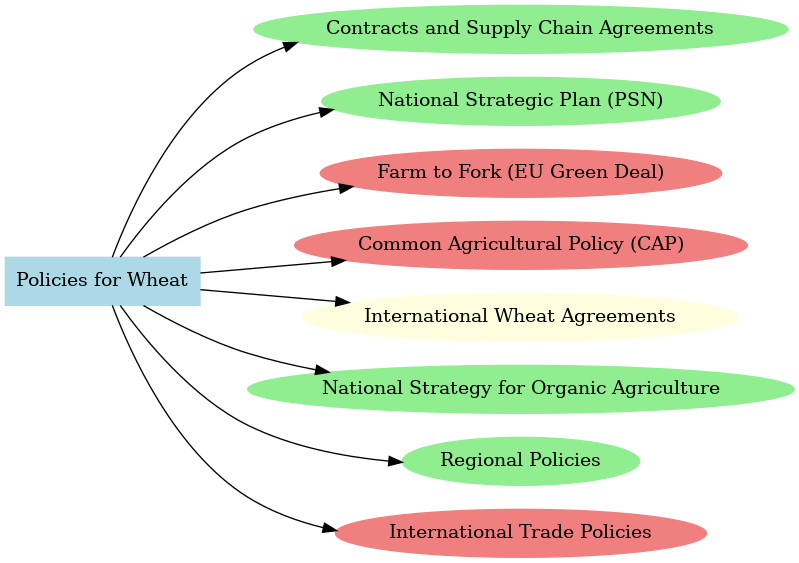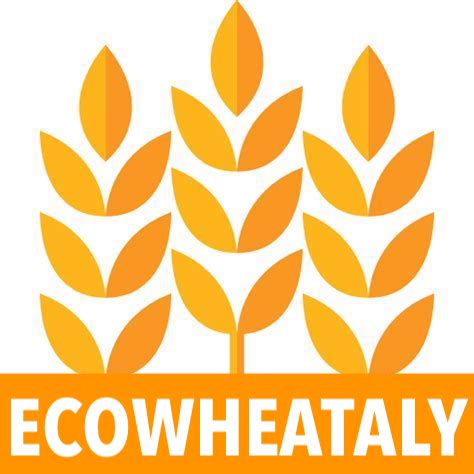Wheat policies are the set of strategies, regulations and economic measures adopted by governments and international organizations to manage and support grain production, trade and sustainability. These policies aim to ensure food security, market stability and the competitiveness of the agricultural sector by balancing economic needs with environmental and social needs.
Agricultural policies play a crucial role in supporting farmers and promoting innovative and sustainable practices, this is because wheat is a strategic crop for global food security and for the Italian agricultural economy. However, production is under pressure due to climate change, sustainability requirements and market dynamics.
The wheat policies studied are dealt with at the Italian and European level, and are: the Supply Chain Contracts, the National Strategic Plan or National Rural Development Program, the Fram to Fork (part of the Green Deal), the CAP, and the International Agreements on Wheat (most recently in 2003). Beyond these main ones, there are policies, for example the National Strategy for Organic Agriculture (Italy), Regional Policies (Italy), Innovation and Research Policies (EU and Italy), and International Trade Policies (EU).
Below is a chart indicating all the policies for wheat, and a table showing the level and scope of each politic.

| POLICY | SCOPE | LEVEL |
| Contracts and Supply Chain Agreements | Internal | Italian |
| National Strategic Plan (PSN) | Internal | Italian |
| Farm to Fork (EU Green Deal) | Environment | European |
| Common Agricultural Policy (CAP) | Support | European |
| International Wheat Agreements | Trade | European/Global |
| National Strategy for Organic Agriculture | Internal | Italian |
| Regional Policies | Internal | Italian |
| International Trade Policies | Trade | European |

